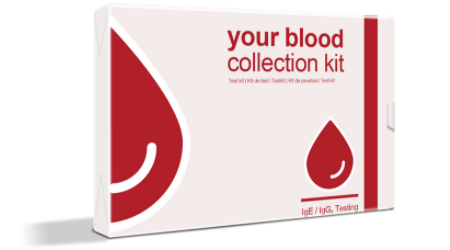There are a lot of health conditions out there that all seem to be detrimental to our health. One of these conditions is Coeliac Disease, which impacts many people every single day. A lot of those supposedly living with coeliac disease are actually dealing with gluten intolerance, however, and may find themselves changing their lives in big ways that really aren’t that necessary. The determining factor of which one you’re living with is found in a gluten intolerance test.
The Role of a Food Intolerance Test in Coeliac Disease
There is quite a difference between coeliac disease and gluten intolerance. The gluten intolerance test is what is going to help you figure out what you’re dealing with, which will help you develop a healthy relationship with food.
When you are living with coeliac disease, food with any amount of gluten causes a serious immune system response where the body attacks the gluten. It sounds similar to an allergy, but it is different in that the reaction itself will cause serious damage to the lining of the stomach. The lining of your stomach is critical; keeping your body absorbing the nutrients that it needs. This lifelong disease is managed by completely eliminating gluten entirely from the diet.
Gluten intolerance, on the other hand, is when the body is physically unable to digest gluten. While eating gluten products will make you uncomfortable, there is no immune system response, so there is no damage that can be done from eating gluten products.
When you take a gluten intolerance test, you are going to be, obviously, getting concrete results on whether you have gluten intolerance or not. If you do, you’ll be able to use that to help you move your food-related life forward. If you find out that you don’t have a gluten intolerance, you’ll be able to move to the next test on the list as far as figuring out what is happening in your body.
Positive or negative, a gluten intolerance test will help you understand what’s going on in your body, why you should be concerned, and what steps you need to take in order to make sure that you stay healthy, safe and happy.
Why get Tested for Gluten Intolerance?
If gluten intolerance and coeliac disease are so similar in terms of how to live with them, why the importance of the test? Sure, avoiding gluten is going to be the goal for both of these conditions, but what about the reason behind it?
- Make changes as necessary: If you take the test, you’ll only have to make changes that are necessary for your health. That is, discovering you have gluten intolerance means that you do need to try for an elimination diet, but you can enjoy gluten in small amounts, especially if your intolerance is only mild.
- Better to know than not know: If you think you have gluten intolerance and are still eating gluten in small amounts and it turns out that you have coeliac disease, you are potentially injuring your stomach lining to the point that your nutritional health could be in jeopardy as well. Better to know which it is from the get-go, right?
There are significant differences — most of which relate to the amount of risk — between coeliac disease and gluten intolerance. For the most accurate changes to your life, a gluten intolerance test is going to be the right tool to put to work for everyone’s benefit.



